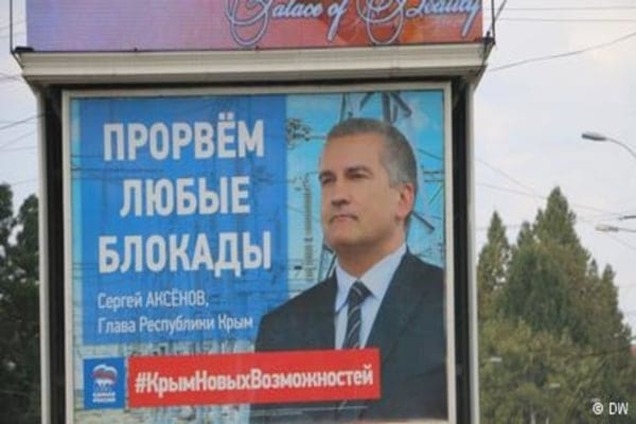
Obyazannosti Vahtera Obschezhitiya
Steven Terner Mnuchin was sworn in as the 77th Secretary of the Treasury on February 13, 2017. As Secretary, Mr. Mnuchin is responsible for the U.S. Treasury, whose mission is to maintain a strong economy, foster economic growth, and create job opportunities by promoting the conditions that enable prosperity at home and abroad.
Various 750 mm (2 ft 51⁄2 in) gauge railways operate in Ukraine as common carrier, industrial railway or children's railways.
750 mm (2 ft 51⁄2 in) gauge common carrier[edit]
Lines in Carpathian Ukraine[1]
- Beregovo region network, around 200 km, initially built during the Hungarian Empire at the gauge of 760 mm (2 ft 515⁄16 in) and regauged to 750 mm (2 ft 51⁄2 in) when Ukraine became part of the Soviet Union
- Uzhgorod region, 35 km, built at the gauge of 760 mm (2 ft 515⁄16 in) and regauged to 750 mm (2 ft 51⁄2 in).
Antonivka system in West Ukraine
- Built around 1900 at the gauge of 750 mm (2 ft 51⁄2 in) [2]
Central Ukraine[3]
- Haivoron network, built around 1900 at the gauge of 750 mm (2 ft 51⁄2 in), 703 km.[4]
- Novopoltavka railways
- Vapniarka railways, 140 km, built at the 600 mm (1 ft 115⁄8 in) gauge by Germany, later regauged to 750 mm (2 ft 51⁄2 in)
750 mm (2 ft 51⁄2 in) gauge industry, agricultural and forest railways[edit]
Industrial, peat, sugar and forestry lines [5]
- Mykhailivka sugar railway,1932–1990.
- Okhtyrka sugar railway, 56 km, 1940–1999.
- Potash industrial lines, 49 km, 1933–2003.
- Smyha peat railways
- Teresva forestry railway, 138 km, built at the gauge of 750 mm (2 ft 51⁄2 in) and regauged to 760 mm (2 ft 515⁄16 in) (Between the two World Wars the region was a part of Czechoslovakia) and back to 750 mm (2 ft 51⁄2 in).
- Vygoda system, 180 km of forest railways
750 mm (2 ft 51⁄2 in) pioneer railways[edit]
Ten pioneer or children's railways exist in various cities.[6]
- Dnipro pioneer railway, 2 km in the Globy Park in Dnipro, opened in 1936.
- Donetsk pioneer railway, 2 km in the Leninist Komsomol Park in Donetsk, opened in 1972.
- Yevpatoria pioneer railway near Yevpatoria on the Crimea Peninsula, opened around 1990, abandoned.
- Kharkiv pioneer railway, 4 km in the northern part of Kharkiv, opened in 1940.
- Kiev pioneer railway, 3 km in the Syretskij Park in Kiev, opened in 1953.
- Lutsk pioneer railway in Lutsk, built 1952–1954.
- Lviv pioneer railway, 1,9 km in the Strijskij Park in Lviv
- Uzhhorod pioneer railway on the bank of the River Uzh in Uzhhorod, opened in 1947.
- Rivne pioneer railway, 2 km, in Rivne, opened in 1949.
- Zaporizhia pioneer railway, 9 km, between the main railway station of Zaporizhia and the River Dnieper, opened in 1972.
References[edit]
- ^[1] MPS lines in Carpathian Ukraine
- ^[2] The Antonivka system in West Ukraine
- ^[3] MPS-lines in Central Ukraine
- ^[4] Southern supply railway
- ^[5] Industrial and forestry railways in the Ukraine
- ^[6] Pioneer railways in the Ukraine
Contents. Taxonomy Zaluzianskya was named in honour of, 1558–1613, a physician of Prague, author of Methodus Herbariae, 1592. Zaluziansky seems to have been a deservedly prominent botanist in his day, with some views on taxonomy quite advanced for his time. Pollinators Superficially the shape of the flowers is strikingly -like, hence the designation 'night phlox', for their evening fragrance. The fragrance after dark suggests that in nature the species in question are pollinated by moths, whereas day-pollinated species often have little or no obvious scent. Research is in progress on the ecological and evolutionary relationships between some members of the genus and specialist long-tongued pollinators, particularly night flying hawk moths (family ) and flies in the families,. Day-flying hawk moths, such as the genus (hummingbird hawk moths) also seem to be significant pollinators of many species of Zaluzianskya.
Cultivation Zaluzianskya species have not been of horticultural significance until recently. Is cultivated as an. Species Species include. (spreading night phlox). (windowphlox). (night phlox).

(southern lilac drumsticks, blue drumsticks). Marloth, Rudolf. “The Flora of South Africa” 1932 Pub. Cape Town: Darter Bros. London: Wheldon & Wesley. Arnold T.H., de Wet B.C.
(Eds), Plants of Southern Africa: Names & Distribution, Memoirs of the Botanical Survey of South Africa No. 62, Pub.National Botanical Institute, South Africa.1993.
Chittenden, Fred J. Ed., Royal Horticultural Society Dictionary of Gardening, Oxford 1951.
Debus, Allen G., Man and nature in the Renaissance, Cambridge 1978. Picker, M., Griffiths, C., Weaving, A. Field Guide to the Insects of South Africa, Struik 2003. Www.struik.co.za. Bruce Anderson, Steven D. Kohn, The Geographical Mosaic Of Coevolution In A Plant–Pollinator Mutualism, Evolution, Jan 2008: Vol. 62, Issue 1, pgs 220-225.
S. Carbutt and C.
Specialization for hawkmoth and long-proboscid fly pollination in Zaluzianskya. Botanical Journal of the Linnean Society, Vol 138 pp 17–27 March 2002.
Max to c4d serial numbers. External links Wikimedia Commons has media related to. Has information related to.